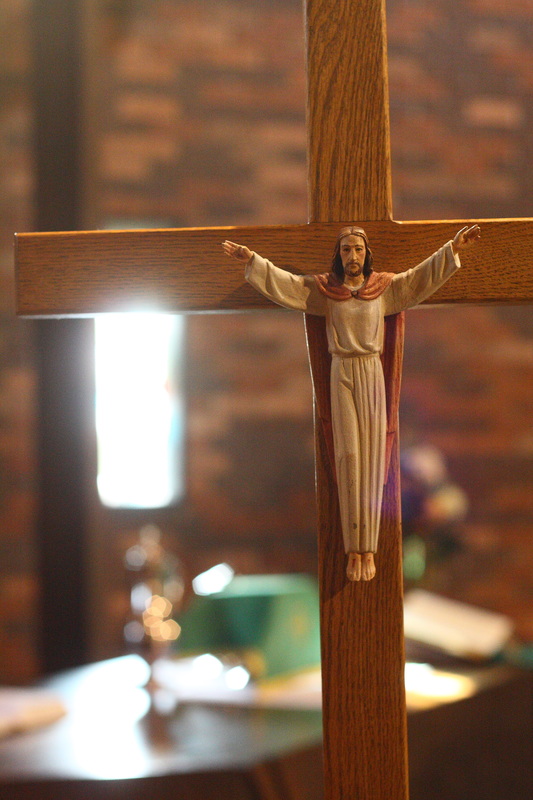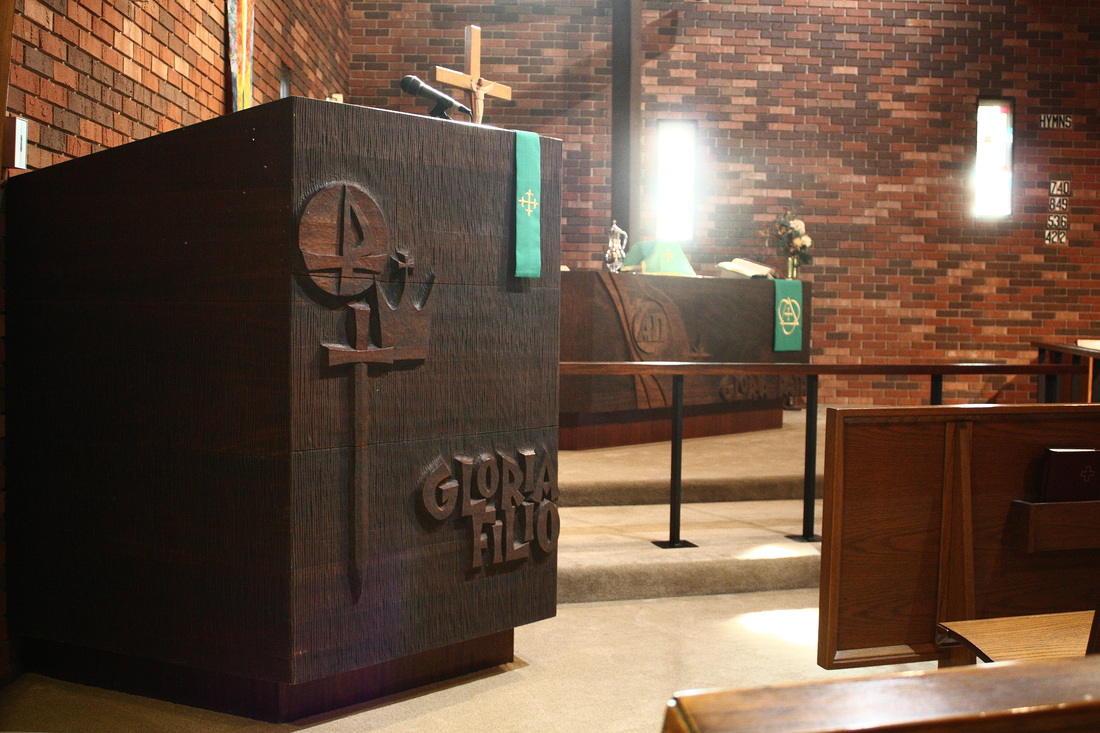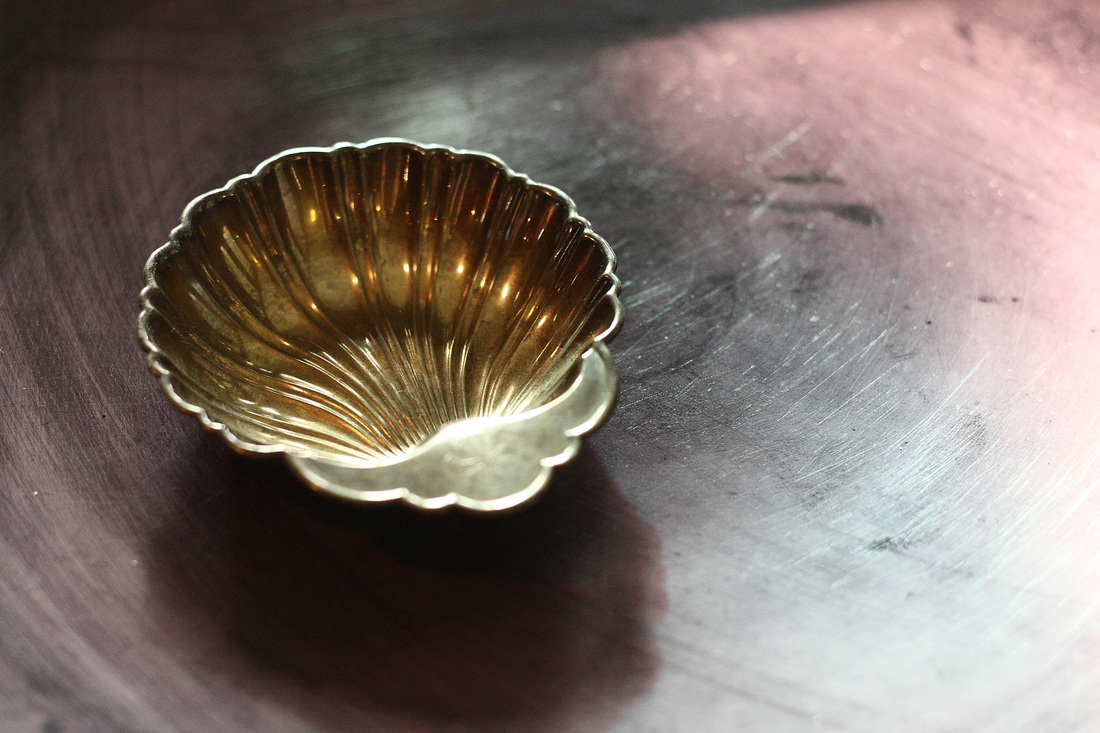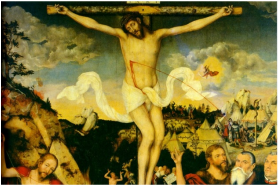Holy Communion is the Lord's SupperHoly Communion is among the greatest gifts Christ gave to his church. By it we eat the same body that hung on the cross and we drink the same blood that Christ shed for us. This mysterious meal grants us the forgiveness of sins, life and salvation. As with Baptism, where we use ordinary water, God's word and promise make it extraordinary, so in this meal we drink ordinary wine and unleavened bread, which by the power of Jesus' word and promise is his body and blood.
Saint Paul calls this supper the Lord's Supper. Christ Jesus, our Lord is both the host and the guest. For this reason we do not alter the elements (bread and wine) or Christ's words. This gives us certainty that we receive Christ's true body and blood and all the benefits therein. Communion PolicyWe believe that in bread and the wine in the Lord's Supper are Christ's body and blood given to the Church as a gift. Those who eat this Sacrament with repentant hearts and in true faith, trusting in its promises receive the forgiveness of sins. In communing together we proclaim our common commitment to all the teachings of the Bible as confessed in our church. For this reason and to protect our guests from participating in the sacrament about which they may believe differently than we, the Lord's Supper is offered in this congregation to the confirmed members of congregations within the confessional fellowship of the Lutheran Church-Missouri Synod. We ask that guests who would like to commune at Trinity would speak to the pastor beforehand.
The Service of the SacramentThe Lord's Supper takes up an entire section of each of our Divine Services. We celebrate the Lord's Supper every Saturday evening at 6:00 PM and Sunday morning at 10:00 AM. This is a precious gift that we need often, for we daily sin much and need the forgiveness of sins.
To learn more about what we believe concerning the Lord's Supper, read the information below from Luther's Small Catechism.
As the head of the family should teach it in a simple way to his household.
|
|
7. Who is Christ? The Son of God, true God and man. 8. How many Gods are there? Only one, but there are three persons: Father, Son, and Holy Spirit. 9. What has Christ done for you that you trust in Him? He died for me and shed His blood for me on the cross for the forgiveness of sins. 10. Did the Father also die for you? He did not. The Father is God only, as is the Holy Spirit; but the Son is both true God and true man. He died for me and shed his blood for me. 11. How do you know this? From the holy Gospel, from the words instituting the Sacrament, and by His body and blood given me as a pledge in the Sacrament. 12. What are the Words of Institution? Our Lord Jesus Christ, on the night when He was betrayed, took bread and when He had given thanks, He broke it and gave it to the disciples and said: "Take eat; this is My body, which is given for you. This do in remembrance of Me." In the same way also He took the cup after supper, and when He had given thanks, He gave it to them, saying: "Drink of it, all of you; this cup is the new testament in My blood, which is shed for you for the forgiveness of sins. This do, as often as you drink it, in remembrance of Me." 13. Do you believe, then, that the true body and blood of Christ are in the Sacrament? Yes, I believe it. 14. What convinces you to believe this? The word of Christ: Take, eat, this is My body; drink of it, all of you, this is My blood. 15. What should we do when we eat His body and drink His blood, and in this way receive His pledge? We should remember and proclaim His death and the shedding of His blood, as He taught us: This do, as often as you drink it, in remembrance of Me. 16. Why should we remember and proclaim His death? First, so that we may learn to believe that no creature could make satisfaction for our sins. Only Christ, true God and man, could do that. Second, so we may learn to be horrified by our sins, and to regard them as very serious. Third, so we may find joy and comfort in Christ alone, and through faith in Him be saved. 17. What motivated Christ to die and make full payment for your sins? His great love for His Father and for me and other sinners, as it is written in John 14; Romans 5; Galatians 2and Ephesians 5. 18. Finally, why do you wish to go to the Sacrament? That I may learn to believe that Christ, out of great love, died for my sin, and also learn from Him to love God and my neighbor. 19. What should admonish and encourage a Christian to receive the Sacrament frequently? First, both the command and the promise of Christ the Lord. Second, his own pressing need, because of which the command, encouragement, and promise are given. 20. But what should you do if you are not aware of this need and have no hunger and thirst for the Sacrament? To such a person no better advice can be given than this: first, he should touch his body to see if he still has flesh and blood. Then he should believe what the Scriptures say of it in Galatians 5 and Romans 7. Second, he should look around to see whether he is still in the world, and remember that there will be no lack of sin and trouble, as the Scriptures say in John 15-16 and in 1 John 2 and 5. Third, he will certainly have the devil also around him, who with his lying and murdering day and night will let him have no peace, within or without, as the Scriptures picture him in John 8 and 16; 1 Peter 5; Ephesians 6; and 2 Timothy 2. Note: These questions and answers are no child's play, but are drawn up with great earnestness of purpose by the venerable and devout Dr. Luther for both young and old. Let each one pay attention and consider it a serious matter; for St. Paul writes to the Galatians in chapter six: "Do not be deceived: God cannot be mocked." |



